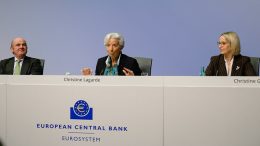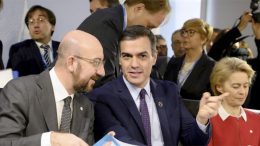Eurogroup Hits That Northern Wall Again: Eurobonds Are Neither There Nor Expected
After 16 hours of telematic meetings, the Eurogroup came close to reaching an agreement, but once again, that did not happen. Once again, it is postponing the decision until tomorrow, Thursday. Once again, it has failed. The Eurozone finance and economy ministers remain divided over the debt mechanism which will help the countries most affected by the pandemic to finance themselves. This division between North and South has a very clear figure: 500 billion euros are up in the air.










